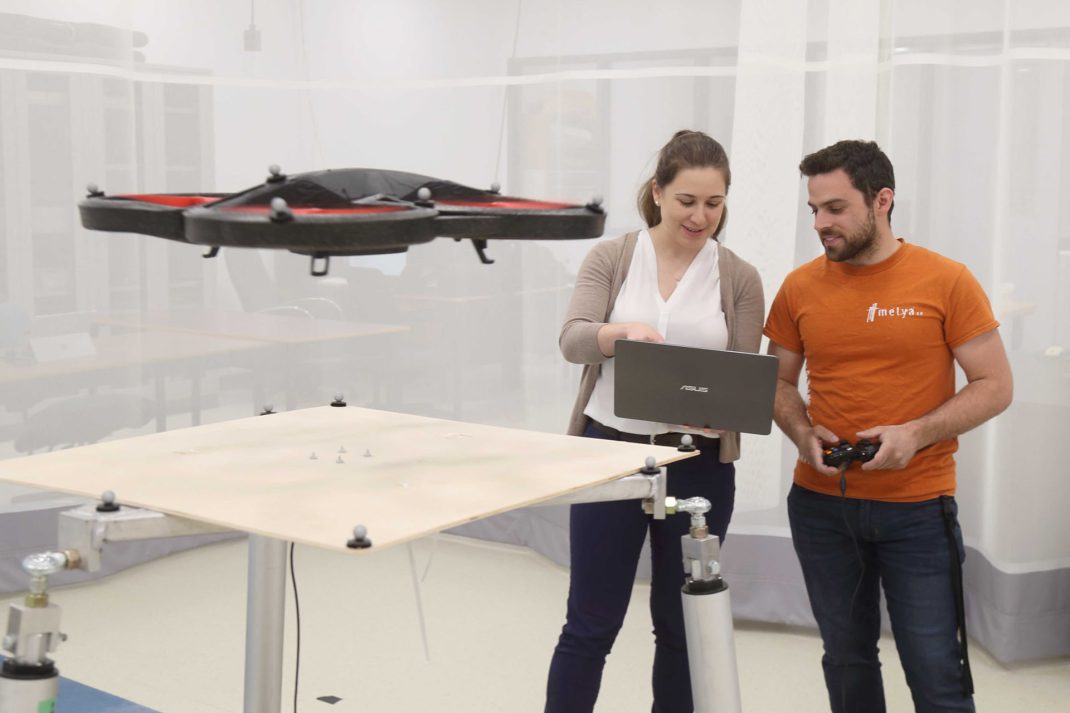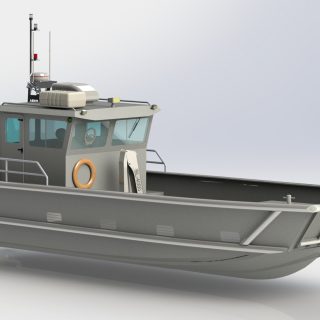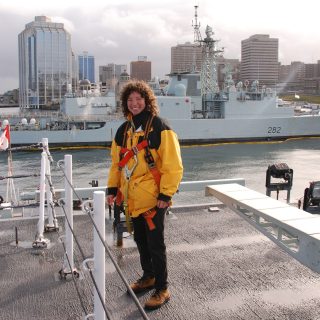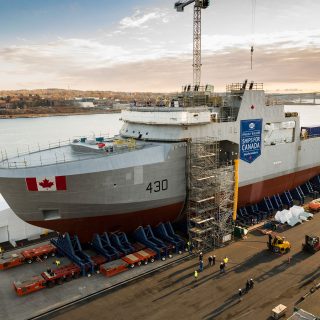Our Stories
A new Irving Shipbuilding research chair at Dalhousie University will contribute to Canada becoming a premier marine research leader in the world.
The Irving Shipbuilding Chair in Marine Engineering and Autonomous Systems will create a foundation for sustainable Canadian talent and leadership in marine engineering and provide leadership in Ocean Engineering at Dalhousie University. Irving Shipbuilding is contributing $500,000 to establish and support the research chair position.
Dr. Mae Seto, an associate professor in Dalhousie’s Faculty of Engineering, has been appointed the Irving Shipbuilding Chair in Marine and Engineering Autonomous Systems and work is already underway on many projects. Dr. Seto worked for 16 years as a defence scientist with Defence Research and Development Canada (DRDC). Her experience positions her well to not only undertake this highly specialized research, but also support students in her lab to follow in her footsteps.
Dr. Seto and the students she supervises are working on intelligent autonomous systems, unmanned ships, shipboard intelligent launch and recovery systems, and marine robotics. Their research activity, done in conjunction with the Ocean Frontiers Institute (OFI) will support many aspects of the marine industry including, search and rescue, underwater communications and navigation, and oceanographic modeling with the aim to use that information to create economic and social value.
This research area is a key to the success of OFI, which relies on the development of new and innovative technologies to measure and observe the ocean. Atlantic Canada has a rich history in ocean sensing which has long been supported through DRDC, the Canadian Navy and the Bedford Institute of Oceanography.
Irving Shipbuilding is funding the chair position as part of the Value Proposition commitment under Canada’s National Shipbuilding Strategy. Through this commitment, Irving Shipbuilding will invest 0.5% of contract revenues in projects that will help create a sustainable marine industry. The Value Proposition commitments on the Arctic and Offshore Patrol Ships, currently under construction at the Halifax Shipyard, will provide approximately $12.5 million in funding to projects across Canada.

Quotes
Kevin McCoy, President, Irving Shipbuilding
“Irving Shipbuilding is proud to partner with Dalhousie University and the Ocean Frontiers Institute. This innovative research is addressing many of the most exciting topics in the marine industry today and will certainly contribute to advancing Canada’s ocean economy.”
Dr. Alice Aiken, Vice President Research at Dalhousie University
“Dr. Seto is pushing the field of marine robotics forward, and her research is addressing many of the fundamental gaps in this critically important area. Her work is truly world-class, and we’re incredibly proud that it is happening at Dalhousie.”
Dr. Mae Seto, Irving Shipbuilding Chair in Marine and Engineering Autonomous System
"I am honoured to occupy the Irving Shipbuilding Research Chair in Marine Engineering and Autonomous Systems. My collaboration with OFI provides me with an opportunity to conduct timely research in the field of marine robotics and develop state-of-the-art ocean observation systems that will give us an unprecedented view of the marine environment."



